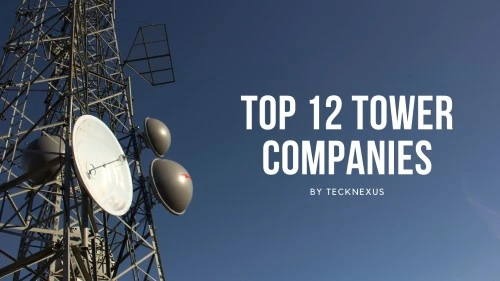Hanyang University Hospital in Guri, South Korea, has deployed an advanced Private 5G network from HFR Mobile. This marks a milestone in smart healthcare by leveraging private networks to address critical safety and operational challenges. The solution encompasses a full-fledged private 5G infrastructure, including a core network, service management platform, centralized (CU) and distributed units (DU), and radio units. By integrating cutting-edge technologies like AI and real-time monitoring, the deployment sets a new benchmark for healthcare operations.
Key Benefits of Private 5G at Hanyang University Hospital
- AI-Powered Patient Monitoring:
The private 5G network supports AI-driven CCTV systems that monitor emergency rooms and waiting areas. These systems detect fall incidents and potential hazards in real time, enabling medical staff to respond immediately. The ultra-low latency of private 5G ensures alerts are delivered without delays, improving response times and potentially preventing accidents. - Real-Time Infusion Monitoring:
The solution incorporates bedside monitoring of intravenous (IV) therapy. It tracks fluid flow rates, delivery volumes, and statuses in real time, enabling clinicians to identify irregularities immediately. This enhances patient safety, reduces errors, and allows healthcare providers to focus on other critical tasks. - Seamless Connectivity for Medical Applications:
Private 5G’s high-speed and secure data transmission capabilities support sensitive medical applications. This ensures compliance with data protection regulations while enabling smooth communication across devices, applications, and staff. - Integrated Infrastructure for Advanced Operations:
The deployment combines centralized and distributed units, a service management platform, and advanced radio components to provide an integrated and scalable network. This infrastructure ensures operational efficiency and reliability, even in the hospital’s demanding environment.
Addressing Critical Safety Concerns in Healthcare
Hospitals face unique challenges, including managing patient safety, ensuring efficient workflows, and safeguarding sensitive medical data. Traditional network systems often fall short in meeting these demands, particularly when rapid response times are critical. Private 5G’s high bandwidth, low latency, and advanced capabilities provide a robust solution to these challenges. For example:
- Hazard Prevention: AI-driven systems identify risks like falls or patient incidents in emergency rooms and waiting areas, sending instant notifications to staff.
- Emergency Response: By delivering real-time data, private 5G helps medical teams respond to emergencies faster. This is especially critical in high-pressure environments such as emergency rooms.
Broader Implications for Healthcare
The successful implementation of private 5G at Hanyang University Hospital demonstrates the technology’s potential to transform healthcare. Beyond real-time monitoring, the solution paves the way for future applications such as robotic surgeries, AR-assisted diagnostics, and predictive healthcare powered by IoT.
Global Trends in Private 5G for Smart Healthcare
This deployment aligns with a global trend in healthcare digitalization. Similar projects, such as the installation of a 5G Internet of Things (IoT) solution at The First Affiliated Hospital of Soochow University in China, highlight the growing adoption of private 5G in healthcare. These initiatives are moving healthcare toward more integrated, automated, and data-driven systems.
HFR Mobile: Shaping the Future of Healthcare with Private 5G
HFR Mobile’s role in this deployment showcases its expertise in delivering Private 5G solutions tailored to specific industries. By focusing on healthcare, the company is contributing to safer and more efficient medical environments. HFR Mobile’s broader vision involves connecting private networks to critical services, enabling seamless digital transformation across industries.
Benefits for Hanyang University Hospital
- Improved Patient Safety: Real-time hazard detection and infusion monitoring mitigate risks and enhance emergency response.
- Streamlined Workflows: Automation of monitoring systems reduces the workload for medical staff, allowing them to prioritize direct patient care.
- Enhanced Data Security: Private 5G ensures secure data transmission, safeguarding sensitive patient information.
- Future-Ready Infrastructure: The deployment provides a scalable platform for adopting emerging healthcare technologies, such as IoT devices and augmented reality tools.
The Role of Partnerships in Hanyang Hospital’s 5G Success
HFR Mobile’s deployment relied on a collaborative ecosystem of technology partners. This ensured access to state-of-the-art components like advanced AI algorithms, low-latency 5G infrastructure, and secure service management platforms. Such partnerships are key to delivering robust solutions in complex environments like hospitals.
How Hanyang Hospital’s 5G Deployment Sets a New Industry Standard
The success of this deployment sets a precedent for other hospitals and healthcare providers globally. Private 5G networks have the potential to become the backbone of smart healthcare systems, enabling innovations such as predictive analytics, wearable monitoring devices, and real-time health management systems.
The Future of Private 5G in Global Healthcare Systems
The implementation at Hanyang University Hospital is just the beginning. As private networks continue to evolve, hospitals worldwide could leverage similar solutions to create highly efficient, connected, and secure healthcare ecosystems. Future applications may include:
- Robotics in Surgery: Low-latency networks can support precision surgeries conducted remotely.
- AR and VR for Training: Augmented reality and virtual reality tools can revolutionize medical training and diagnostics.
- IoT for Predictive Healthcare: IoT devices connected via private 5G can monitor patient vitals continuously, predicting and preventing health issues.
Hanyang University Hospital’s deployment of a private 5G solution by HFR Mobile highlights the transformative potential of private networks in healthcare. By addressing critical safety and efficiency challenges, the hospital has set a benchmark for integrating cutting-edge technologies in medical environments. As private 5G adoption grows, it will continue to play a pivotal role in shaping the future of healthcare.
This case study serves as a strong endorsement of private 5G networks as a vital enabler for smart healthcare innovations, paving the way for safer and more efficient medical facilities worldwide.


















